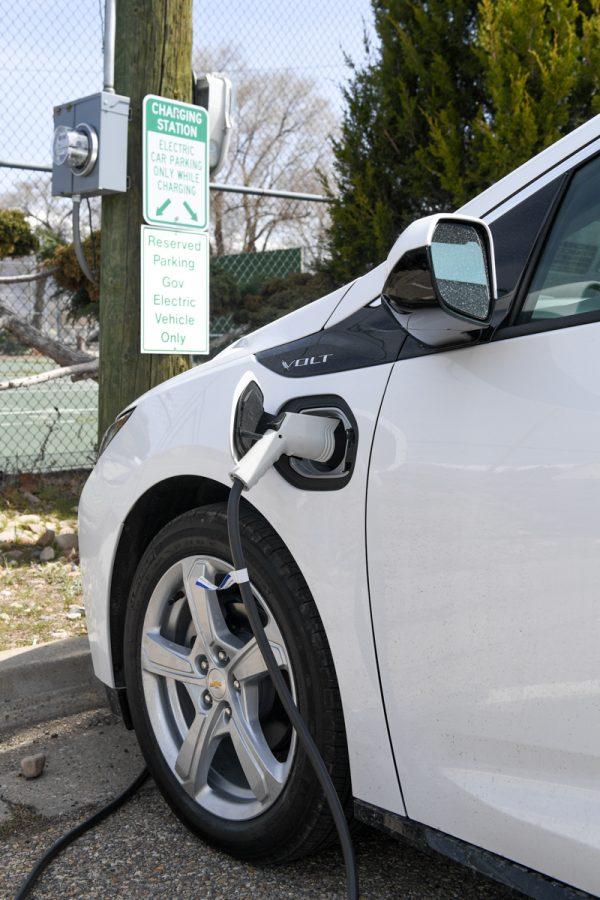The icebergs are melting; the wildfires are spreading, and the world is warming. There’s only so much that people can do to prevent the rising temperatures, but that doesn’t stop them from trying. The CEOs of companies like Tesla and Nissan strive for a world full of sustainable transportation through electric vehicles (EV) to help slow climate change. The future of EVs and sustainability may not be so far away. But according to the oil and gas industry’s agenda, this will not happen.
EV companies have the potential to sell EVs at a reasonable price using new technology and resources, so why don’t we see more Tesla Model Xs or Nissan Leafs on the roads? There’s only one answer: Politics.
EVs and the oil industry are on opposite sides of a seesaw. If, or when, EVs become the common car, the oil industry would see a major downfall. Over 70% of oil consumption goes towards transportation fuel; 47% of that goes to motor gasoline. The wide distribution of EVs would disrupt the consumption of oil, leaving nearly half of oil consumption in need of a redirection. More EVs is bad news for the oil industry. It means less demand for oil, lower profits for oil companies, and people in the oil industry losing their jobs.
Here comes the politics. Automakers and oil companies see EVs as a threat to their business, so they use lobbying tactics to keep EVs a thing of the future. For politicians funded by lobbyist groups, a threat to the oil and gas industry means a threat to their career. Since the oil and gas industry face the threat of EVs, politicians face it too.
Automakers and oil lobbyist groups funnel millions of dollars into politics. Just last year, the oil and gas company Koch Industries put over $10 million toward funding for conservative politicians. One in three dollars donated to Republican politicians are from automakers and oil lobbyists who have the most to lose from an increase of EVs on the road. With great amounts of funding coming from the oil and auto industries, politicians are obligated to halt the mass production of EVs.
Politicians such as Texas Senator Ted Cruz are the perfect candidates for lobbyist groups to sway into helping them. Cruz has made it clear that he “strongly support[s] the oil and gas industry” ever since he began his political campaign for Texas Senator in 2016. One of Cruz’s campaign ideas was a proposal of an energy bill to remove the Environmental Protection Agency’s regulations on the development of the oil and gas industry. This will allow automakers to sell even more gas-powered vehicles than the EPA would allow and fewer EVs than the EPA would demand. Cruz ended up receiving over $1.5 million from automakers and oil lobbyist groups for his campaign that year.
Automakers and oil lobbyists are also very supportive of President Donald Trump, who has actively denied the human contribution to climate change and has supported the growth of the oil and gas industry, thwarting the growth of the EV industry. Just last year, Trump, with the help of Cruz, proposed a tax reform bill that will eliminate the already low tax credit for EV companies, which would mean EV companies will not get a dollar-for-dollar tax refund, while automakers’ tax credit remains untouched. Without tax credit, EV companies are losing money and are not able to produce as many EVs as possible, which is why many are not on the roads today.
Not only are EV companies not able to mass produce EVs, but also they cannot sell EVs at an affordable price for most people. With minimal tax credit, EV companies are losing money, which is where the high prices of EVs come from. The high prices don’t come from greedy EV CEOs hungry for money. If EV companies are losing money, they have to make up that money somewhere so they can continue producing EVs; the technology and resources to produce EV are available, but not attainable. The loss of money also means EV companies can’t fight back and fund politicians who support the development of the EV industry, which leaves the EV industry company at a greater disadvantage. The oil and gas industries, with the help of political allies, are choking out the possibility for environmentally friendly vehicles. Politicians, funded by the oil and gas industry, seek to sabotage the EV companies by hitting them where it hurts the most: Money. If it weren’t for politics’ role, then EVs would be the common car seen on the road today.







